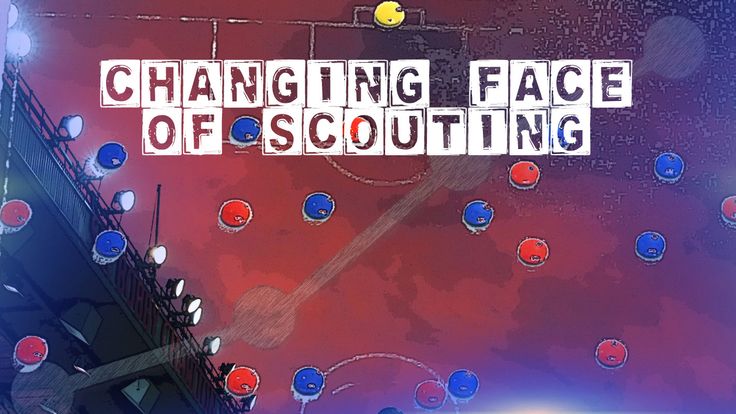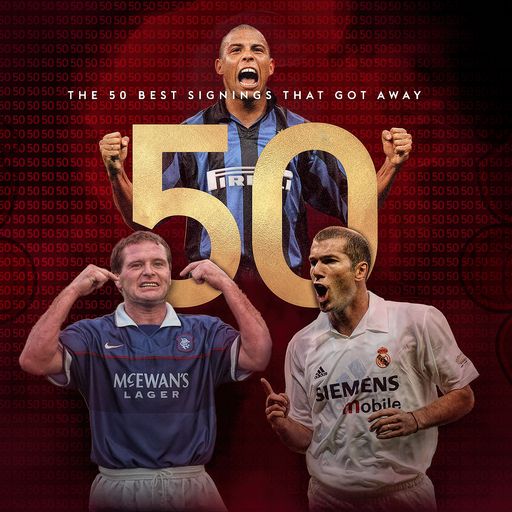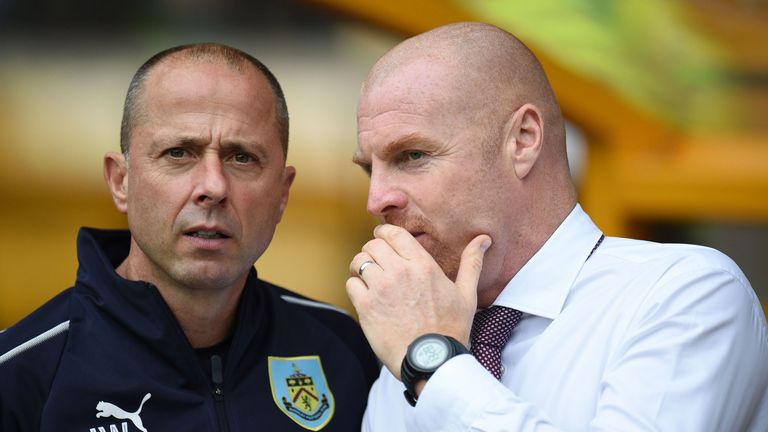Coronavirus in football: Scouting could change, explains Mike Rigg
In conversation with Burnley technical director Mike Rigg, Adam Bate explores how the coronavirus crisis could lead to a change in scouting habits for Premier League clubs.

Thursday 2 April 2020 12:02, UK
Scouts can be the unseen figures at a football club because they are often far away from the training ground. “You spend the majority of your time travelling,” Burnley’s technical director Mike Rigg tells Sky Sports. “You are getting two planes, a bus, a train and a taxi to go and watch a game in the middle of nowhere. You are out of sight.”
But the coronavirus crisis has put scouting in the spotlight. What is a scout supposed to do when there are no football matches left being played for them to watch? While some clubs have furloughed their staff, others are pressing on - for now at least. Whatever happens next, there is a suspicion that scouting in the Premier League might never be the same again.
"What I think this period will do is make clubs think a lot more about the time and cost efficiencies," says Rigg, formerly head of player acquisition at Manchester City, whose department at Burnley has been fully engaged in the opening weeks of the shutdown.
"There is a lot of focus at the moment on carbon footprints and I think the challenge now is to be more mindful. We cannot be busy fools. We need to be more productive about what we do and that is a conversation that everyone across football is going to be having."
Rigg does not expect revolution but he does anticipate a refocusing. His team at Burnley are busy wading through the data and utilising WyScout - a video platform that provides access to games all over the world - to spot what might otherwise have been missed.
"During this period right now when it is not possible to live scout, our ability to continue analysing players is crucial," explains Rigg. "The time and cost efficiencies of it are actually helped because we now have the ability to analyse the player in front of a screen at home. Productivity is going through the roof because we can see a lot more.
"We are covering 30 or 40 individual player reports a day right now and that is generating lots of conversation on video conferences about players' strengths and weaknesses."
Scouting different leagues now?
Burnley currently track 45 different leagues around the world, but when it comes to live scouting they are guided, in part, by ease of travel. Now that the club's scouts are watching from the comfort of their own home it is encouraging them to look further afield.
"We just do not have the manpower of the financial capacity to employ people in all of those different countries watching 45 different leagues. We just can't.
"But we can have scouts watching games in Slovenia, Slovakia, Serbia, Croatia and Bulgaria. You might be looking at some of the youth-team games. If you haven't got the financial capacity to have someone in each of these countries, the only way to do it is like this.
"Basically, it is all about filtering. How do you filter from a huge list of players around the globe and get that down to the small group of players that your club might want.
"Ultimately, what we are doing all this for is so that we can know, for example, who the best young right-back is domestically, in Europe and in the rest of the world. Which is the one who is the best, which is the one who we can afford, and which is the one who will come."
Having so much information just the click of a button away represents an extraordinary shift in scouting and has been a more recent development than some might think. It was not so long ago that clubs were "sending people off to burn DVDs" because the footage was not readily available. The traditional scout has had to move with the times.
"It is about people's skillset growing," says Rigg. "Now, with the onset of WyScout, the people who were doing the job of identifying those players need to be prepared not only to travel and see players live but analyse from a computer as well. It is the same job.
"The majority of people are embracing that. It can be difficult if people are less au fait with technology but it is not an age barrier it is just a willingness barrier. It has nothing to do with age, it is about being prepared to evolve and adapt. That is the key."
Live scouting still important
Of course, there will always be a role for live scouting. For clubs like Burnley this is a time to increase the knowledge base. But eventually, before any signing is even close to being made, there will need to be eyes on the ground. A player will still need to be watched in the flesh. This is not a choice between one or the other. It is all part of the same process.
"Live scouting enables you to see the player in that live environment," says Rigg.
"Some of our scouts will go to a game well before kick-off to see what the player is like turning up to the ground. Remember, we are not just talking about first-team football. When they are turning up at youth games and reserve games, how are they conducting themselves? Who are they friends with? How are they interacting with fans off the bus?
"Any small snippet of information you can pick up helps.
"When you are there, you get a much better context of the physical nature of the game too. You also get a much better panoramic. For example, if I am watching a defender and the ball is down the other end of the pitch, you can see live where he is stood and what his concentration levels are like. Has he switched off? It is very difficult to see that on video.
"Fans are a brilliant source of information when you are at matches as well. They might tell you about a player's character and the recent mistakes that he has made, who might be to blame for those mistakes and so on. These season ticket holders watch it week in and week out so that can be quite interesting. It is all subjective but it helps build a picture.
"The downside is that it isn't physically possible to remember everything that happens on the pitch. This is the key. This is not about the death of live scouting, it is just about being able to complement what you do. There are pros and cons to both."
Burnley's scouting plans
As for Burnley, do not expect them to be signing players from all over the world now just because the scouting operation is more enhanced than at any point in the club's history.
"It doesn't work that way. This is all about knowledge. It doesn't happen overnight. It happens over a long time. We might like some of these players but we might not be able to get them. Firstly because they don't want to come. Secondly because we can't afford them.
"None of this is an exact science but if we could sign players from around the world who are ready to play Premier League football right now then we would be delighted.
"We have a scout called Paulo Araujo who works for us covering the whole of Latin America. Paulo's knowledge of the game is second to none and his contacts in every country are phenomenal. But his work is probably two, three, four, five, six years down the line.
"Finding the player is one thing, acquiring them is another. The manager has been keen to bring in players from further afield but there are so many things out of your control. There was one player who decided not to come here because it was easier for his family to get work permits where they were than in the UK. That wasn't because we didn't want him.
"The great thing is that Sean Dyche and his staff - Ian Woan, Tony Loughlan and Billy Mercer - are so engaged with the whole process. Believe me, that doesn't happen at every club. They are inclusive. There are no shut doors in the offices. For scouts, that is an absolute god send for us. You have the opportunity to talk and that makes the job so much easier."
Scouting is changing and the hope is that WyScout and the ability to analyse players remotely will also make the job that little bit easier in these testing times.
The technology has been around for some time but it could take a lockdown to really transform working practices. When clubs are free to send scouts around the world again, perhaps this enforced period of introspection could spark a change in how, where and why those scouts are sent.

![Burnley technical director Mike Rigg [Credit: Burnley FC]](https://e0.365dm.com/20/04/768x432/skysports-mike-rigg-burnley_4960506.jpg?20200402100649)





